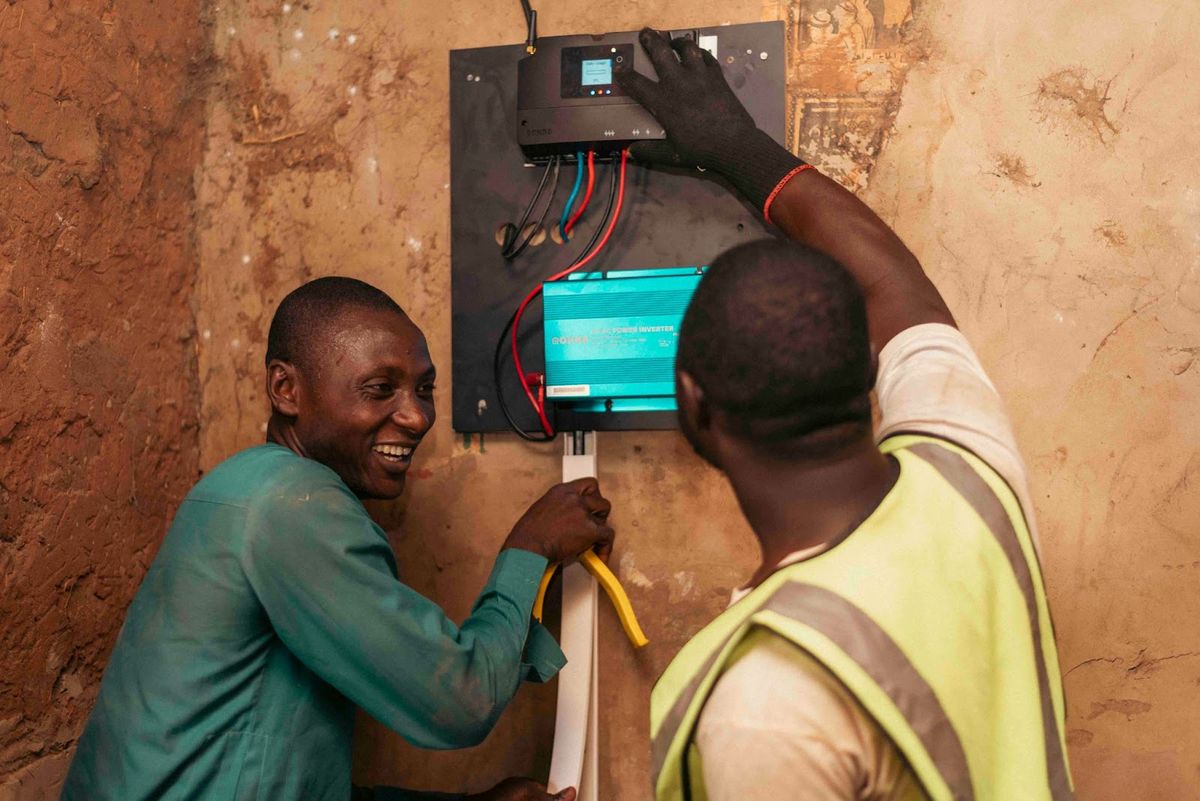Okra Solar raises $12M to power mesh-grid electrification in Africa
Cleantech startup, Okra Solar has raised a $12 million Series A to enable mesh-grid electrification in Africa.

Over 700 million people worldwide still live without access to electricity, and with status quo efforts this number will increase by 2030. This challenge presents an opportunity for mesh grids, a technology that has rapidly established itself as a game-changer in this industry.
In a mesh grid, nearby houses are connected together to share power, allowing them to consume more than on their own. Globally, Okra Solar has been pioneering the expansion of this technology.
To drive the expansion of mesh-grid electrification in Africa, Okra Solar has raised $12 million Series A in debt and equity funding—$7.85 million of the fund is equity provided by At One Ventures, along with FMO, Susquehanna Private Equity Investments LLLP, Autodesk Foundation and King Philanthropies. Meanwhile, the debt was financed by EDFi.
“With the compounding effects of population growth and growing industrialisation, energy consumption on the African continent will increase disproportionately in the coming decades,” says Helen Lin, Partner, At One Ventures. “The IEA forecasts that total power generation capacity in Africa is expected to double to 510 GW by 2030. There is no reason for this new power generation capacity to come from dirty fossil fuel power. We can skip that phase entirely and build it correctly from the start; clean, renewable, and suited to the needs of this market.”
In the challenging off-grid energy market where scalability is highly sensitive to cost viability, mesh grids present a compelling solution to energy developers. Now there is another solution at their disposal when electrifying rural areas with growing energy demands.
Mesh grids enable solar power to be generated at the source of individual homes, where excess power is then redistributed by Okra’s smart algorithms from one connection to the next to optimize utilization. What makes mesh grids unique compared to traditional mini-grids or grid extensions, is that rather than sending power long distances from a centralized generation house, power only travels between neighboring houses.
This hyper-decentralised implementation reduces the cost of distribution—cables and poles—by up to 90% while maximizing up-time and power availability. This is especially pertinent as we move into a future where widespread copper shortages are expected.
Through its B2B model, Okra supplies technology to last-mile energy utilities, who then energise last-mile households. The cleantech has deployed the grids across four countries, including Nigeria. A statement shared with Bendada.com says that over 14,000 people have been energised by Okra's mesh grid.
“FMO is proud to partner with Okra on their pioneering journey to leverage mesh-grid technology to help electrify rural areas and provide affordable power to last-mile households and businesses. We look forward to our collaboration with the Okra team and will actively leverage our value-add services to support their scaling ambitions,” says Marieke Roestenberg, Manager of FMO Ventures Program.
Having previously won the TechCrunch Hardware Battlefield award, Okra has a track record of pushing boundaries on the tech side. Recent product updates include automated network planning software using geospatial data and monitoring of commercial performance down to the asset level. On the hardware side, Okra Pods are now stackable so power output can be increased from 1.2kW AC up to 4.8kW AC power output. The latest version of the pods will also enable mesh-grids to be inter-connectable to existing grid infrastructure.
When asked what the biggest challenge is for Okra Solar to scale, CEO Afnan Hannan, said: “It’s clear that mesh-grids are the most efficient way to achieve last-mile electrification. It starts by ensuring off-grid people have access to basic services such as lighting, e-cooking, and water pumping, and next, to have all of these people connect to the global digital economy. Now we need the regulations to keep up with exponential technology advancement for us to hit 100% electrification by 2030.”






